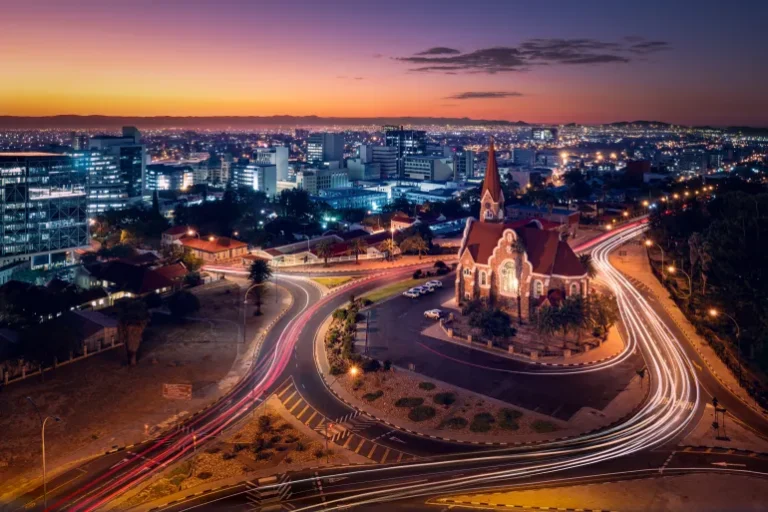Namibia Imposes Entry Visas on American Travelers in Move for Diplomatic Reciprocity
Edition : Widad wahbi
The United States Embassy in Namibia has confirmed that American tourists are now required to obtain an entry visa before traveling to Namibia, effective April 1, 2025. The decision aligns with a new immigration policy adopted by the Namibian government, aimed at achieving balanced and reciprocal diplomatic relations.
While non-tourist visas—such as those for employment, volunteering, or long-term stays—have long required prior application through official Namibian missions or an e-visa platform, the new policy extends the requirement to include ordinary U.S. tourists. The Namibian Cabinet had already approved this change in September 2024, as part of a broader revision affecting citizens from 31 countries, including the United States, the United Kingdom, Germany, the Netherlands, Canada, and Australia.
Officials in Windhoek explained that the new regulations are driven by the principle of reciprocity. Namibian citizens are currently required to obtain visas to visit countries such as the U.S., Canada, and most of Europe, while citizens of those countries have previously enjoyed visa-free access to Namibia. The government stated that the new policy is a step toward asserting national sovereignty and promoting mutual respect in international relations.
The change coincides with the inauguration of Namibia’s first female president, Netumbo Nandi-Ndaitwah, and forms part of a broader strategic shift in the country’s diplomatic posture. Under the new law, U.S. and European citizens must now pay a visa fee of 1,600 Namibian dollars, approximately $34 USD.
The U.S. Embassy in Windhoek has issued a public advisory urging American nationals to respect the updated immigration rules. It cautioned that overstaying the permitted period may result in legal penalties ranging from detention and fines to arrest. The embassy noted that visas may still be available upon arrival at select border points such as Windhoek, Katima, and Ngoma, but advised travelers to secure their visas in advance and carry printed proof alongside valid passports. Travelers are also reminded to ensure that their passports are valid for at least six months and contain at least three blank pages.
While Namibian authorities defend the policy as necessary to restore diplomatic balance, the tourism sector has expressed concerns about potential economic consequences. The country has long depended on foreign visitors, especially from North America and Europe, as a vital source of income. In 2024, U.S. exports to Namibia reached $160.5 million, while imports from Namibia totaled $275.3 million. Tourism associations have warned that the new visa requirement could discourage travel to Namibia and lead to a decline in tourist arrivals in the coming year.
-

The Somali President Holds Bilateral Talks with Egyptian Counterpart
Edited by: Safae FathiThe President of Somalia, Hassan Sheikh Mohamud, held bilateral talks on Monday with Egyptian President Abdel Fattah... Africa -

United States Expands Investment Network Across Central Africa Infrastructure
Edited by: Reda El GhazalThe United States is stepping up its economic engagement in Central Africa, driving a wave of... Economy -

Ukraine expands its engagement with Africa amid rising tensions against Russia
Edited by: Reda El GhazalThe situation in Africa is increasingly becoming a significant front in Ukraine’s broadening geopolitical challenge against... Regional and international cooperation -

DRC and US Discuss Prospective Changes to Travel Protocols
Edited by: Reda El GhazalThe ongoing cooperation between the Democratic Republic of Congo and the United States has entered a... Regional and international cooperation -

The Berg Damara Tribe: Guardians of Namibia’s Ancient Heritage
Edited by : Salma karmassThe Berg Damara tribe stands out as one of Namibia’s oldest indigenous groups, alongside the San... Culture -

Senegal: A New Axis with Angola
Edited by: Sekou KagnéSenegal and Angola are entering a new phase of strategic engagement following a landmark visit to Dakar... Regional and international cooperation

 Follow the latest news on WhatsApp
Follow the latest news on WhatsApp  Follow the latest news on Telegram
Follow the latest news on Telegram  Follow the latest news on Google News
Follow the latest news on Google News  Follow the latest news on Nabd
Follow the latest news on Nabd 


















